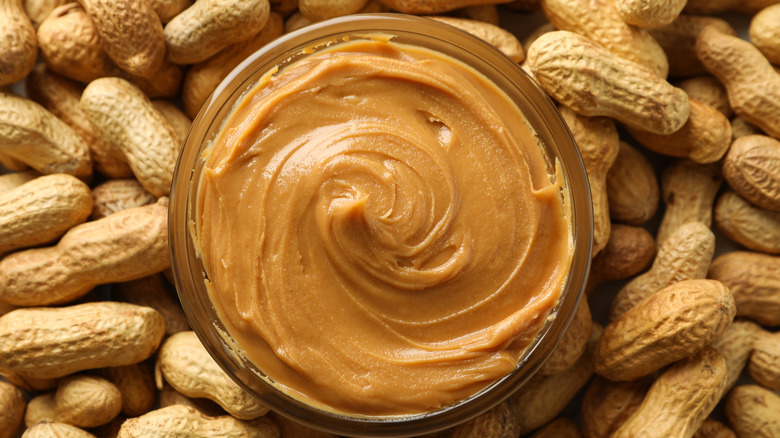Are Peanut Allergies Genetic?
Peanuts are often introduced to people at a very young age. Whether it's a classic PB&J sandwich for lunch in grade school, or enjoying a bag of peanuts sold as a ballpark snack, they've become quite a versatile item. While peanuts and peanut products are overwhelmingly popular, they're also one of the most common causes of allergy attacks (per Mayo Clinic).
Peanut allergies are typically detected in children. According to Mayo Clinic, symptoms can include hives, rash, tingling in the throat, digestive problems, and trouble breathing. If an individual has a peanut allergy, symptoms usually appear after immediate exposure, and reactions can vary in severity.
"While most food allergy is found in childhood, peanut allergies tend to persist into adulthood," Dr. Jaclyn Bjelac, an allergist and immunologist, told the Cleveland Clinic. "Less than 20% of kids will outgrow a peanut allergy."
Treatment for allergic reactions depends on whether the reaction is mild or severe. If a person experiences a mild reaction, it can usually be treated with over-the-counter medicine (via Healthline). Antihistamines can help relieve mild symptoms, including skin reactions like hives or a rash. Severe allergic reactions can be considered a medical emergency and should be treated as potentially life-threatening. A severe allergic reaction will be treated with epinephrine, commonly called an "EpiPen," and medical help.
Can peanut allergies be passed down?
According to Healthline, there is growing evidence that genetic factors may play a part in the development of peanut allergies. While research is ongoing, several studies have shown that a person is more likely to have a peanut allergy if a relative is allergic (via Food Allergies Atlanta). Researchers are exploring other causes of peanut allergies in addition to being hereditary, including environmental factors and dietary choices.
"Peanut proteins are very allergenic," Dr. Bjelac explains to the Cleveland Clinic. "We also believe that the cooking method affects their allergenicity. Most peanut products consumed in the U.S. are roasted, which increases how allergenic they are."
One way to identify a peanut allergy is to test it out slowly and with professional guidance. "Peanuts shouldn't be your child's first food," Dr. Bjelac told the Cleveland Clinic. "Talk to your pediatrician about how to introduce them." Another method of finding a peanut allergy is having a doctor perform a skin prick test. This is done by exposing a patient to peanut extract and observing the reaction (via MedicalNewsToday). If a peanut allergy is found, individuals should avoid all peanut products and foods that may be at risk of cross-contamination. Opt for peanut butter alternatives that can be consumed safely.
While there is no cure for peanut allergies, the best form of treatment is avoidance and elimination of peanut products (per Verywell Health). It is also important to be prepared and informed in case of exposure.


